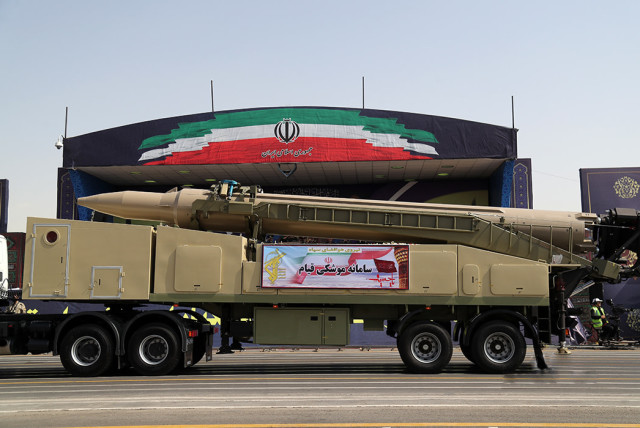Europe not planning to ‘snapback’ Iran sanctions despite continued violations

Western states have been hesitant to discuss sanctions, while Washington and Tehran held indirect talks for an informal agreement that would have Iran freeze its nuclear program.
The European parties to the Iran nuclear deal do not plan to invoke snapback sanctions on Tehran ahead of the expiration of a ban on Iranian ballistic missiles and drone exports set to expire in October, a foreign diplomatic source said on Wednesday.
The E3 – UK, France and Germany – plan to institute their own sanctions related to Iranian ballistic missiles “and other coercive measures” beyond UN sanctions expiration date on October 18, the source stated.
The countries do not plan to add new sanctions or to activate the snapback mechanism, a veto-proof move that would reinstate all UN sanctions on Iran that were in place before the Iran nuclear deal was reached in 2015.
In that way, the E3 views itself as remaining within the framework of the Joint Comprehensive Plan of Action, as the Iran deal is known, and the accompanying UN Security Council Resolution 2231.
Allowing Iran to develop nuclear weaponry
According to the JCPOA, the UN is meant to lift a ban on Iran’s development and production of ballistic missiles capable of delivering nuclear weapons, and on its import and export of missile-related technology, including missiles and drones with a range of 300km. or more. In addition, Iran’s parliament is meant to grant the International Atomic Energy Agency more access to its nuclear facilities, and the EU is required to lift remaining sanctions on Iran’s nuclear program.
The ”other coercive measures” the source said will be maintained in October are likely the EU sanctions.
A German Foreign Office spokesman said in response to a question at a press conference on Wednesday that “Iran has significantly expanded its nuclear activities in recent months and years and, contrary to the JCPOA, Iran’s nuclear program is now more advanced than ever...How we deal with that is still a matter of discussion within E3 at the moment.”
Iran has violated the sanctions set to expire in October by developing and testing ballistic missiles, as well as exporting drones to Russia, used against Ukraine.
In addition, Iran has continuously violated the restrictions on its uranium enrichment and stockpiling stipulated in the JCPOA, enriching uranium to 60% purity as opposed to the 3.67% permitted by the deal.
Last month, the UK Foreign Office noted that Iran’s repeated ballistic missile tests violate the UN Security Council resolution banning them from doing so.
In addition, International Atomic Energy Agency reporting has highlighted the great extent of Iran’s non-compliance with its JCPOA commitments.
Western states have been hesitant to discuss sanctions, while Washington and Tehran held indirect talks for an informal agreement that would have Iran freeze its nuclear program in exchange for some sanctions relief.
The deal, which the Biden administration has denied despite confirmation from diplomatic sources in multiple countries to many media outlets, appeared close to being finalized in recent weeks, but the E3’s preparation to continue sanctions in October could be a sign to the contrary.
Asked about the possibility of a return to the JCPOA, the UK’s then-ambassador to Israel Neil Wigan said last month that “the core objective is that Iran should not acquire a nuclear weapon. We have to make sure that doesn’t happen in any new deal.”
Jerusalem Post Store
`; document.getElementById("linkPremium").innerHTML = cont; var divWithLink = document.getElementById("premium-link"); if (divWithLink !== null && divWithLink !== 'undefined') { divWithLink.style.border = "solid 1px #cb0f3e"; divWithLink.style.textAlign = "center"; divWithLink.style.marginBottom = "15px"; divWithLink.style.marginTop = "15px"; divWithLink.style.width = "100%"; divWithLink.style.backgroundColor = "#122952"; divWithLink.style.color = "#ffffff"; divWithLink.style.lineHeight = "1.5"; } } (function (v, i) { });

